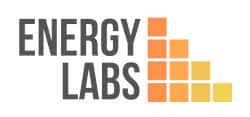When it comes to hot water systems, many homeowners are looking for an energy-efficient solution. Heat pumps are becoming increasingly popular as they can provide hot water without using a lot of electricity. But do you need a special type of electricity connection for a heat pump hot water system?
The answer is generally no, you don’t need a special type of connection. Heat pumps use less electricity than other types of hot water systems, so they typically don’t require their own dedicated power connection… but this is dependent on the heat pump selected.
Let me explain…
Heat pumps produce most of their energy by harvesting it from the air (or ground, or water source), and they do this via a refrigeration circuit which collects low-value heat, and turns it into high-value heat we can use (to heat the water). The main component in this refrigeration cycle is a compressor, which consumes the majority of the electricity supplied to the heat pump. A good heat pump may have an efficiency (coefficient of production, COP) of 400% (COP 4.0). This means that for every 1.0kW of electrical energy supplied, it has the ability to produce 4.0kW of heat energy (but watch out – poor performing heat pumps can have a low efficiency of around 150% (COP 1.5)).
What does this mean for your electrical connection?
Depending on the compressor in your heat pump, you may need a 10, 15 or even 20 amp power supply to it (this can be due to the size/output of the compressor, or the fact that it has poor efficiency, and therefore needs more power to generate the same amount of heat as a more efficient heat pump).
Many heat pumps also have a backup or booster electric element – this is a contributing factor to the power supply required, as this electrical heating element can double, triple, or even quadruple the amount of power supply required to the unit.
You’ll need to get your heat pump installed by a qualified electrician – they will be able to advise on what type of connection you need and whether it is suitable for your home’s current electrical setup.
To make sure your heat pump hot water system is efficient, you should check:
- what the COP is (make sure you compare apples for apples with COP – specifically what water temperature and air temperature the COP is given at (the higher the air temperature, and the lower water temperature, the higher the COP)).
- whether the unit has an electric booster/backup element, and when does it turn on, for example:
- some heat pumps only use the compressor to heat the water to ~45°C, and then use the electric element to get the water up to 65°C, which drastically lowers the true COP).
- Some heat pumps use the element as a booster if the compressor is taking too long to heat the water (e.g. when the air is cold, and there has been a large drawdown of hot water, it may take the heat pump 10 hours to recover, so after 6 hours the booster can kick-in to speed up the hot water recovery rate).
- Very rarely are the electrical booster/backup elements there truly only as an emergency backup – but with some models you can adjust the settings so that it does behave only in this emergency manner (this is what we recommend).
Tip: Some manufacturers make multiple models of heat pumps – models with booster/backup elements, and models without – and therefore if you have limited electrical supply to your home, you can select a heat pump without a booster element to keep the required power supply as low as possible (for example, under 10 amps).
In general, heat pumps are relatively low-maintenance and don’t require too much attention once installed, so they’re worth the investment if you’re looking for an energy-efficient way to heat your hot water. However, it’s important to make sure that the installation process is done correctly so that you get the most out of your system and don’t end up spending more money than necessary on unnecessary repairs or replacements down the line.
